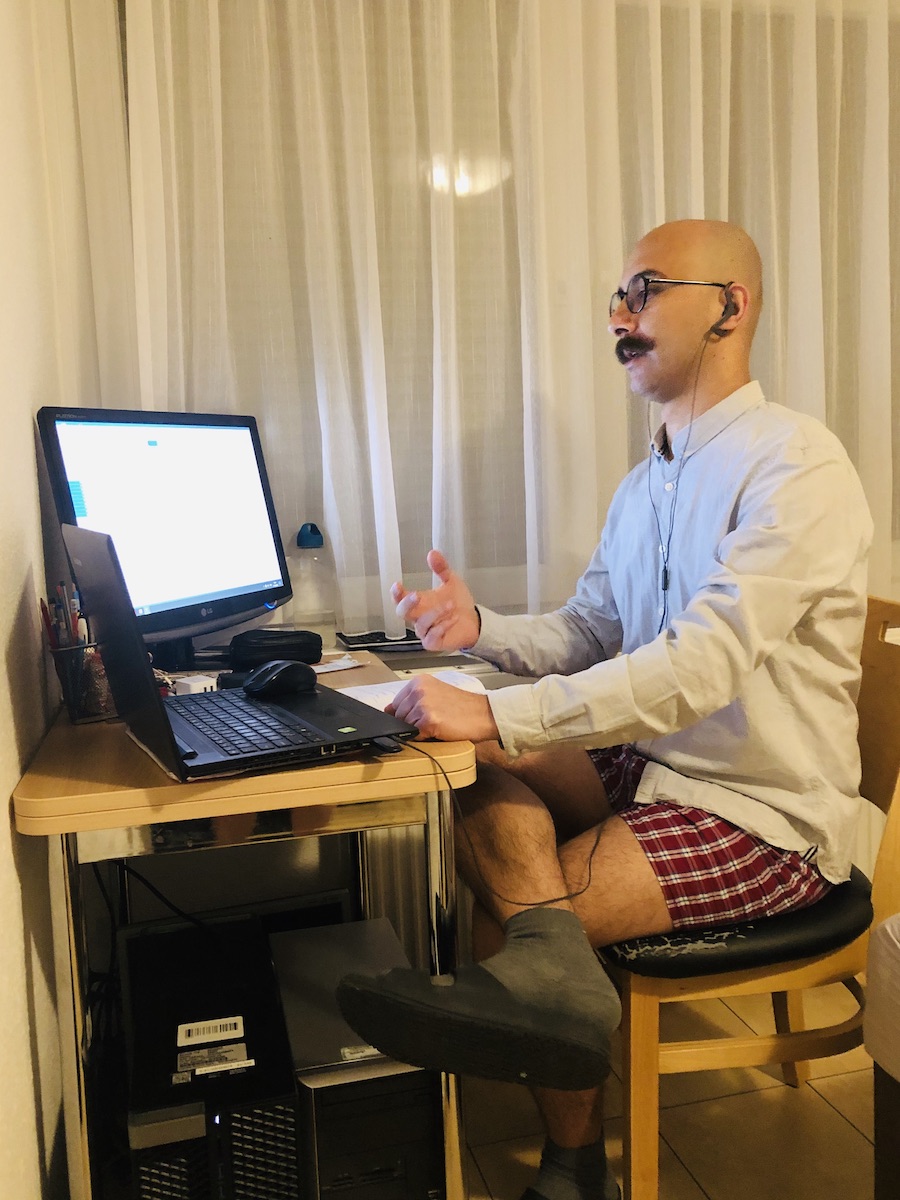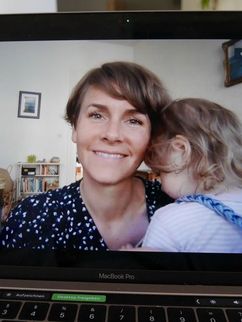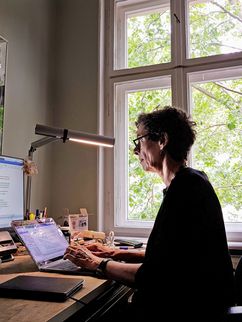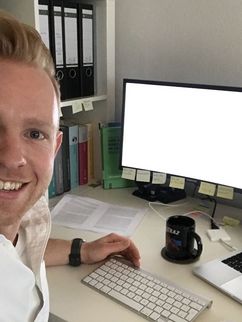Wie geht es den Leibniz-Forscherinnen und -Forschern inmitten der Corona-Krise? Wie kommen sie im Homeoffice und mit dem neuen Alltag klar? Wir haben sie gefragt, was sich für sie durch Corona geändert hat, welche Strategien sie für das Leben mit dem Virus entwickelt haben – und auf was sie sich für die Zeit nach der Pandemie schon jetzt wieder freuen. Dieses Mal haben wir unseren Corona-Fragebogen nach Potsdam geschickt: an den Chemiker Nader Marzban. Er hat uns auf Englisch geantwortet.
How is work life during the pandemic?
Since September, I go to the institute two days a week doing experiments in the lab and the rest of the time I work at home. It’s very enjoyable to proceed with my PhD experiments after the long term of home office.
I had planned to perform the main experiments sooner, but then the first lockdown happened. So I used the time to read more papers about my PhD topic and to do small experiments necessary for further steps. Therefore the lockdown has a positive effect on my results.
How you have been doing during the second lockdown?
The second lockdown is better than the first one, because after a while we got used to the new situation caused by the coronavirus and its lifestyle. Back then we didn’t know what exactly we are dealing with. Wearing a mask, social distancing, living without friends – all this happened for the first time. The coronavirus is still a virus, but we accepted this situation and that’s why living in second lockdown is easier for us.
Have you recently discovered anything (new) online that you would like to share?
There are many interesting podcasts like Science Talk, Nature Podcast, NDR info, 60-Second Science, The Water Values and The Zero Waste Countdown Podcast. These are my favorite scientific podcasts. I’m also listening to the non-scientific podcasts. And my favorite public service television broadcast is ZDF.
How do you keep fit?
Before the pandemic, I rode the bike for 12 kilometers per day. I had my fitness training and a swimming course once a week. At the moment, I’m only using the bike to go to the supermarket once or twice a week. And most of the time I bring up some stupid reasons for using the bus instead of riding the bike. In short, I’m a lazy person during the corona time.
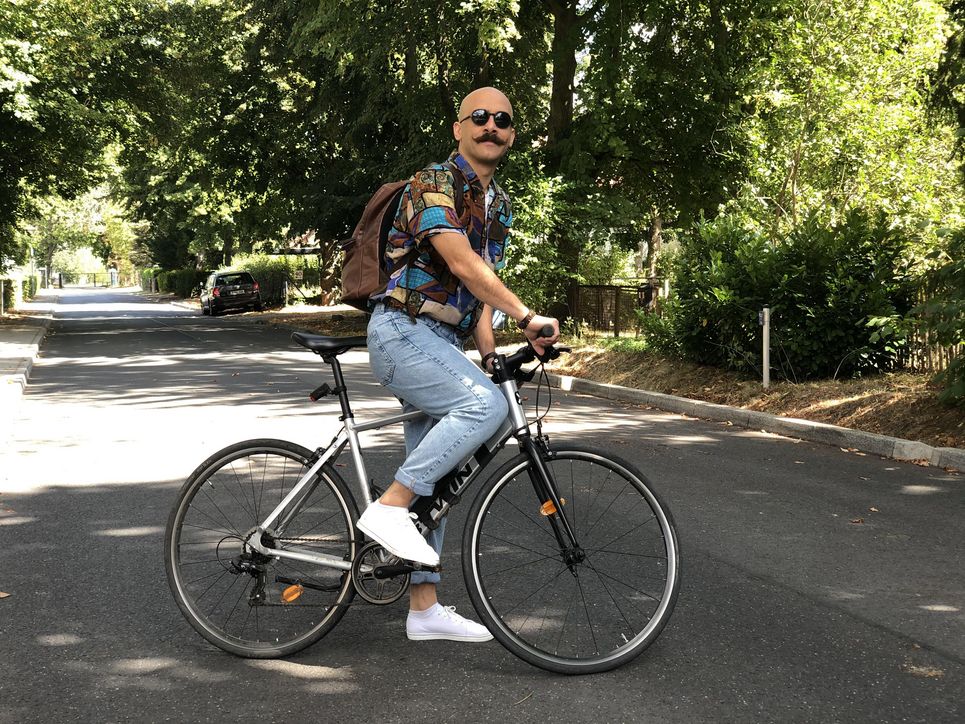
What is your current favorite food?
Most of the time I eat prepared foods like pizza, because it’s hard to find free time during the day to cook something. Preparing pizza is very easy: You take a bus to the supermarket. Before entering you put on your mask. Then you can buy different sorts of pizza. Back home, you put them in the oven – ten minutes later you’ll have a delicious pizza ::)). For dinner, I usually eat salad.
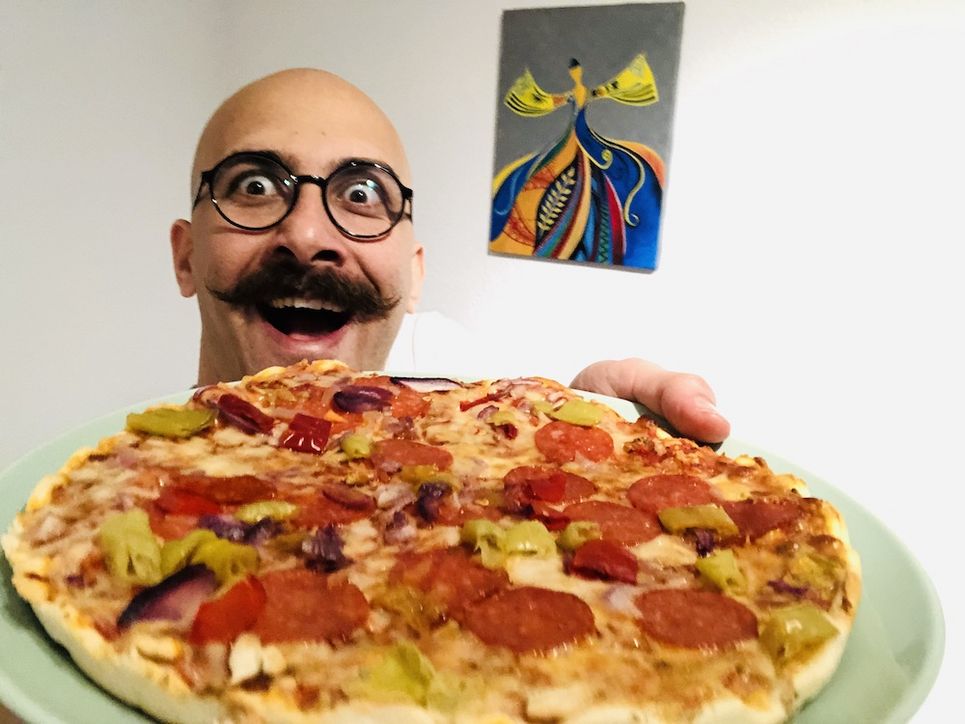
What do you miss the most?
The combination of work and personal life during the lockdown has positive and negative sides. It can be nice to do your personal and scientific life simultaneously. For example, you can turn off your laptop camera and go to the toilet while listening to the speaker of the meeting or conference (but don’t forget to turn off your microphone). You don’t need to wear formal clothes for the conference, not even if it’s your own presentation. The unpleasant side is that you don’t know what you’re exactly doing, because you can’t see any feedback of listeners to your presentation.
Who are you closest to at the moment?
I’m living with my wife and that makes life much easier and enjoyable for me. She is also a student and is doing her courses online. We divided the daily tasks, for example I’m responsible for preparing the dishes (usually put the pizza in the oven, and at the weekend cooking some Iranian foods). When I finish my work, I have to clear away several cups which I have accumulated on my worktable. She believes that it would be very helpful if I just sit and work and do not mess up the home. That is also a kind of help which I’m doing, isn’t it?
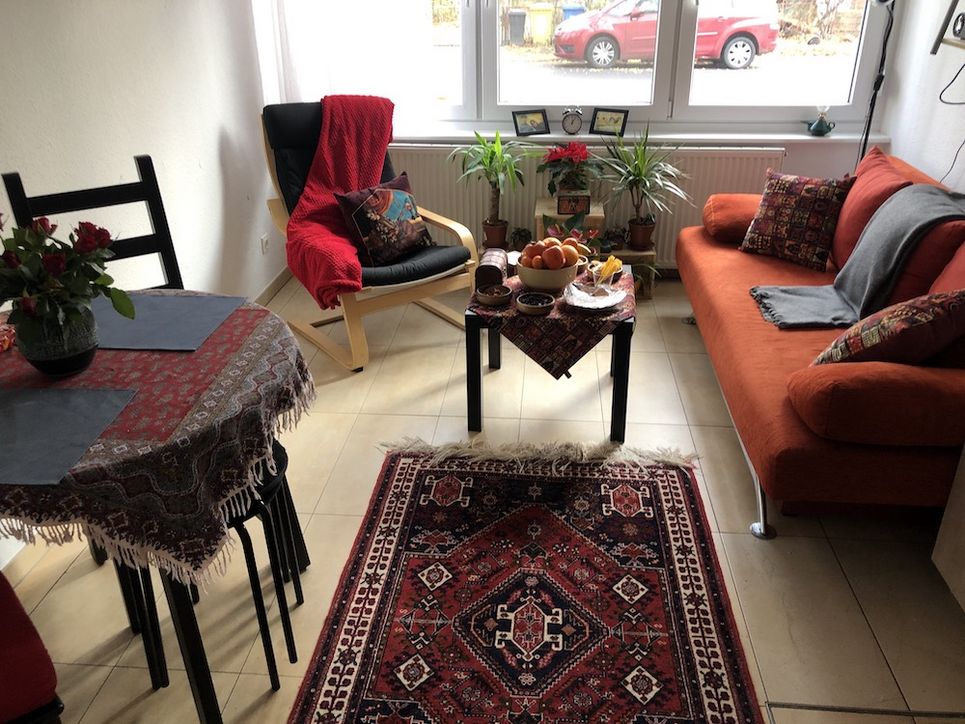
Have you made any specific plans for the Lockdown?
During the coronavirus crisis, I had a long term online German course of B2 level and I finished it successfully. Now I can watch German movies and series and understand them without subtitles. I also can communicate with our German colleagues. I can hear and understand conversations but I think it’s not the same for them (sometimes they need more time to guess what I meant ::)).
Has your view on the world changed during the pandemic? If yes, how?
The coronavirus pandemic has forced us to consider our unexpected future and the reality that we’re vulnerable. This virus is just an example of how fast the community, social behavior, economic conditions can be changed or even destroyed. This situation can make us more enthusiastic to act against the climate change and focus more on scientific works related to climate change. I’m worried about the climate change and its effect on our life in the near future. Humans and wild animals might face new challenges for survival because of the changes. We might need to wear the mask outside our houses and use a big air filter for filtering the air inside the house. We need to act now to prevent the greenhouse gas emission while being ready for unexpected catastrophes.
NADER MARZBAN
is a PhD student at Leibniz Institute of Agricultural Engineering and Bio-economy (ATB). He is a chemical engineer and currently working on hydrothermal conversion of animal manure to hydrochar. In his project, he takes one main source of air and water pollutants and converts it through environmentally friendly process to value-added products for agricultural or environmental applications.
